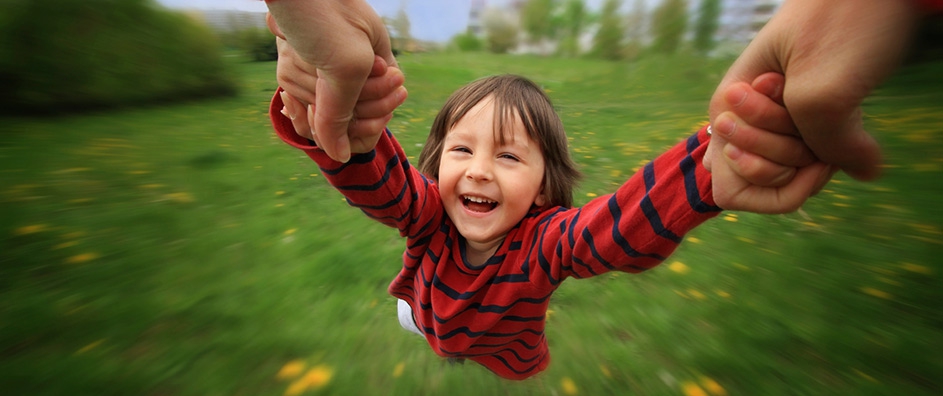The views expressed in our content reflect individual perspectives and do not represent the authoritative views of the Baha'i Faith.
As to the children: We have directed that in the beginning they should be trained in the observances and laws of religion; and thereafter, in such branches of knowledge as are of benefit, and in commercial pursuits that are distinguished for integrity, and in deeds that will further the victory of God’s Cause or will attract some outcome which will draw the believer closer to his Lord. We beg of God to assist the children of His loved ones and adorn them with wisdom, good conduct, integrity and righteousness. – Baha’u’llah, from a tablet to an individual Baha’i, quoted in A Compilation on Baha’i Education, pp. 250-251.
Religious teachings are essential for the proper development of the mind and the spirit. If religious instruction is not given to the children they will grow heedless and lose their moral susceptibilities. – Abdu’l-Baha, Star of the West, Volume 5, p. 96.
A huge, seismic shift has begun to take place across many of our cultures—more and more, people have abandoned traditional religious practices. Churches, mosques and temples have emptied out as this massive social trend has accelerated. Multiple polls and studies indicate that a significant portion of the populace of many different societies now identify themselves as having no religion. In some countries, the number of the “unchurched” or the “nones”—people who self-identify as having no particular Faith—has even become the majority.
This megatrend has enormous implications for society, some positive and some negative. On the positive side of the equation, it indicates the growing influence of the Baha’i principle of the independent investigation of the truth; and the impact of the Baha’i teaching that urges every person to seek their own beliefs beyond their parents’ traditional or inherited religion. It shows that the old traditional ways of unquestioned belief are passing.
But on the negative side of the equation, we may also be losing some of the moral guidance that a religious upbringing traditionally gave to children. More and more parents, who have no particular Faith themselves, are deciding to raise their children without any early religious or moral education. While such a religion-free upbringing might help kids in some ways, sparing them the rigid, guilt-driven instruction fundamentalist religions emphasized, it also may harm children by depriving them of a reliable moral compass in life.
We all need, from the beginnings of our consciousness as children, a moral compass, a way to tell right from wrong. Typically we get that compass from our parents and our familial and cultural environment; but we also learn it from a higher authority, a divine source. If we live in a Judeo-Christian culture, for example, we absorb the general moral teachings of the Golden Rule and the Ten Commandments. If we’re raised in a Buddhist culture, we learn the Eightfold Path and the Four Noble Truths—regardless of whether we grow up as practicing Buddhists or not. If we’re raised in a Muslim culture, we learn the Five Pillars. All of these essentially moral teachings come originally from religion, and then gradually work their way into cultural practices, jurisprudence and the legal and moral underpinnings of the society:
…if you consider the matter with fairness you will see that these good deeds of the non-believers also have their origin in the divine teachings. That is, the Prophets of old exhorted men to perform them, explained their advantages, and expounded their positive effects; these teachings then spread among mankind, successively reaching the non-believing souls and inclining their hearts towards these perfections; and when they found these actions to be laudable and to bring about joy and happiness among men, they too conformed to them. Thus these actions also arise from the divine teachings. – Abdu’l-Baha, Some Answered Questions, newly revised edition, p. 351.
So regardless of the ethical guidelines or moral education you give your children, you’re already raising them “in a religion”—because humanity’s mores, ideals, principles and social standards originated in the teachings of the prophets of God. Whether from Abraham, Moses, Krishna, Buddha, Christ or Muhammad, the major prophets and founders of the world’s great Faiths laid down a common moral framework for human beings that we all still attempt to follow today, regardless of whether we call ourselves believers or not.
Baha’is believe in the oneness of these great Faiths; and in the essential unity of the moral guidelines and teachings they brought. Accordingly, Baha’is raise their children by educating them in the teachings of all of the Faiths of the past prophets; as well as the most recent, Baha’u’llah:
Incline your hearts, O people of God, unto the counsels of your true, your incomparable Friend. The Word of God may be likened unto a sapling, whose roots have been implanted in the hearts of men. It is incumbent upon you to foster its growth through the living waters of wisdom, of sanctified and holy words, so that its root may become firmly fixed and its branches may spread out as high as the heavens and beyond. – Baha’u’llah, Gleanings from the Writings of Baha’u’llah, p. 97.
So should you raise your children in a religion? If you do, consider raising them in the broad and unifying embrace of the Baha’i teachings, opening their souls to the breeze of God:
So man who is freed from material things and dominates nature, should learn to render his love also unlimited and divine. He should open his soul to the Breeze of God, that it may blow through him and break down all barriers.
So, if you love, endeavour to love divinely. If you love your country, love it not with the narrow feeling that it must be loved because it is yours alone, but with the greater consciousness that your home is a part of the universe. If you love brother or comrade or wife, love each one as a part of God, and not with the narrow sense of possession which renders the love selfish and exclusive. Then the Breeze of God blowing constantly through your love will purify it and make it divine so that the Breath of the Holy Spirit will enter into your being and unite you to God.
But do not seek the honours and loves of this world, seek rather God and His love, and then the Honours and Loves which belong to Him will be yours. All the glory of the heavens is his, all the beauty of the flowers, the scent of the roses and the colours of the sunset. But more than this the beauty of the soul is His, so that when you look long upon His beauty, it takes many forms and reappears in your consciousness in many figures. But all other beauty fades and disappears, all other honour but His becomes insignificant, all other love but His is undesirable. – Abdu’l-Baha, Star of the West, Volume 2, p. 6.
You May Also Like
Comments

















Religion is nearly always a matter of geography, and sadly, not a matter of choice.
even with the best of intentions and in the most poetically beautiful language, indoctrination of innocent, unsuspecting children, is precisely the difference between the civilized, advanced, peace-loving societies in Scandinavia, and the opposit in the Middle East.
wage peace, say no to child-indoctrination...please